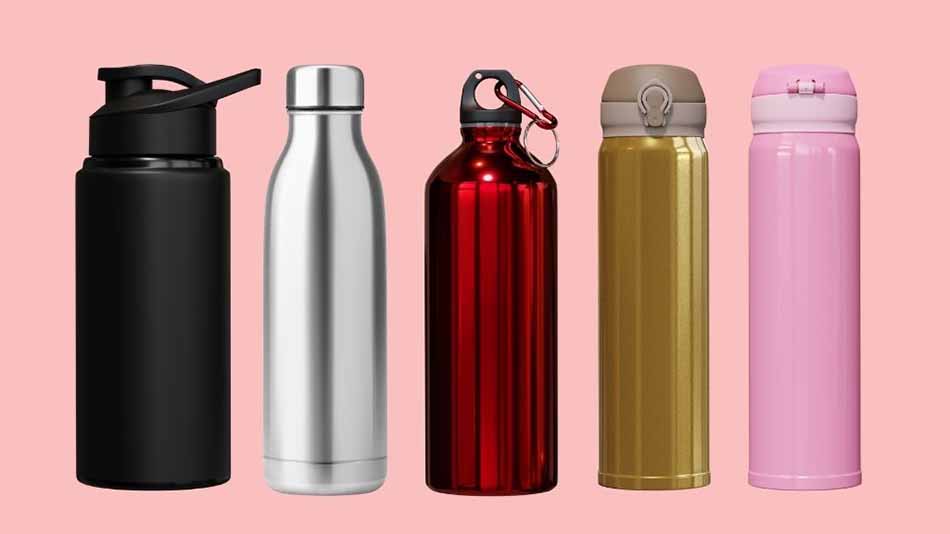While traveling and realizing that you are without a reusable water bottle, what is your solution next? Do you buy one instantly? If you buy one, do you care about the water packaging bottle? Water bottle material matters, but what are the best materials for drinking water bottles?
In the case of one-time water bottle water, it will stick around for a long period after you finish the last drop. Are you aware of the pollution of the earth and the huge amount of human-generated waste of material like bottled water? Hopefully, you care.
As a consumer, we need water every day. We cannot go without water. But, the best solution is to use reusable water bottles to prevent pollution on the planet. We have sorted some best materials for water bottles that are reusable and recyclable including the pros and cons of various water bottle materials.
What Factors Need to Consider While Buying a Water Bottle?
You’re probably wondering how to choose the ideal water bottle for your requirements. We’ll go over the key elements in this area that you should look at before deciding which water bottle best suits your needs.
1. Health and Safety
The manufacturing of water bottles involves the use of a number of chemicals, some of which have adverse effects that may be harmful to your health. Because of this, it’s crucial to think about how each kind may affect your health.
When selecting a water bottle, one hazardous chemical to be aware of is bisphenol-A, which is widely utilized in the manufacturing of various plastic products, including water bottles. This is an important thing to think about, particularly when purchasing water bottles for children.
2. Cleaning Easiness
Water bottles need to be cleaned sometimes in order to remain suitable and healthful for you. They do not clean themselves. Additionally, see if the dishwasher can clean it. Numerous types of water bottles cannot be cleaned in a dishwasher. You will need to set aside some time each day to clean the bottle if you get one with that restriction.
Furthermore, many water bottles are easier to clean since they don’t retain stains. This is because the tension of constantly wiping away stains that may have adhered to the surface will not be an issue for you.
3. Weight of Material
There are many weights and sizes for water bottles. You should think about if the water bottle you are going to purchase weighs enough for you. Purchasing a hefty water bottle that can impede your speed and movement is not advised when purchasing a bottle primarily for athletic purposes.
It’s probable that a lightweight water bottle would better meet your needs. That being said, weight may not matter if all you need is a water bottle for work. Because plastic water bottles are often lightweight, they are appropriate if weight is a concern for you.
4. Easy Carrying Feature
Purchasing a water bottle that will be difficult to carry in public or fit in your backpack is not what you want to do. Whether you’re looking to purchase a kids’ or sports water bottle, carrying convenience should be a top priority.
Among the things to watch out for are the bottle’s weight and size. Think about if it has a handle or sling that you can use to carry while you go about your regular activities.
5. Size and Capacity
Do you require a large bottle, or would a small bottle suffice? Not only the bottle’s dimensions but also the amount of water it holds. If you want to use the bottle while traveling and may not always have easy access to water to refill it, this is something to keep in mind.
The following are The Best Materials for Drinking Water Bottle:
01. Plastic Water Bottle.
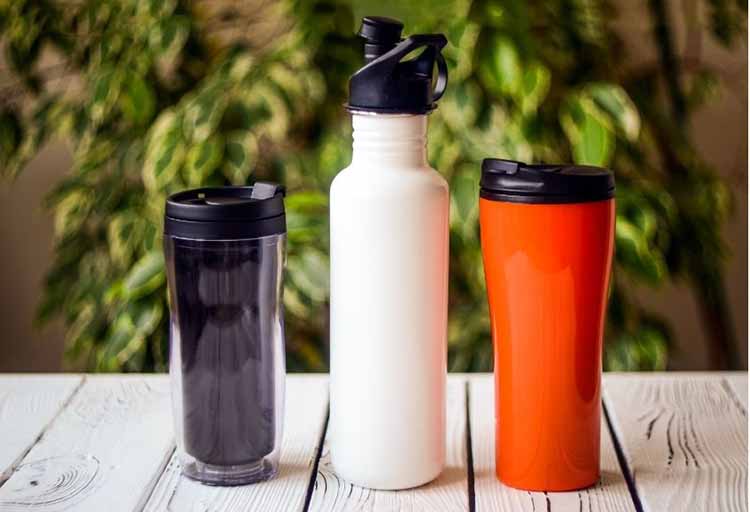
Because plastic bottles offer so many advantages, people have been using them for drinking and storing water for years. However, because plastics are so harmful to the ecology, there have been efforts recently against the use of plastics to store water. There are several types of plastic water bottles, including Tritan, Polypropylene, and Polycarbonate.
Pros of Plastic Water Bottle
- Simple to carry for Lightweight
- Many shapes, sizes, and colors are available
- Reasonable price material
- Different types of lids
- Excellent unique shapes and creative design
- Best for kids
- Dishwasher Safe
- Customizable Design Possible
Cons of Plastic Water Bottle
- Water doesn’t taste as fresh as it does in glass bottles
- Most are not insulated, No Temperature Control
- Might have BPA
- Smell in bottle
- Discoloration in Sunlight
- Needs to change every couple of years
- The design can peel off after regular use
02. Aluminum Water Bottle
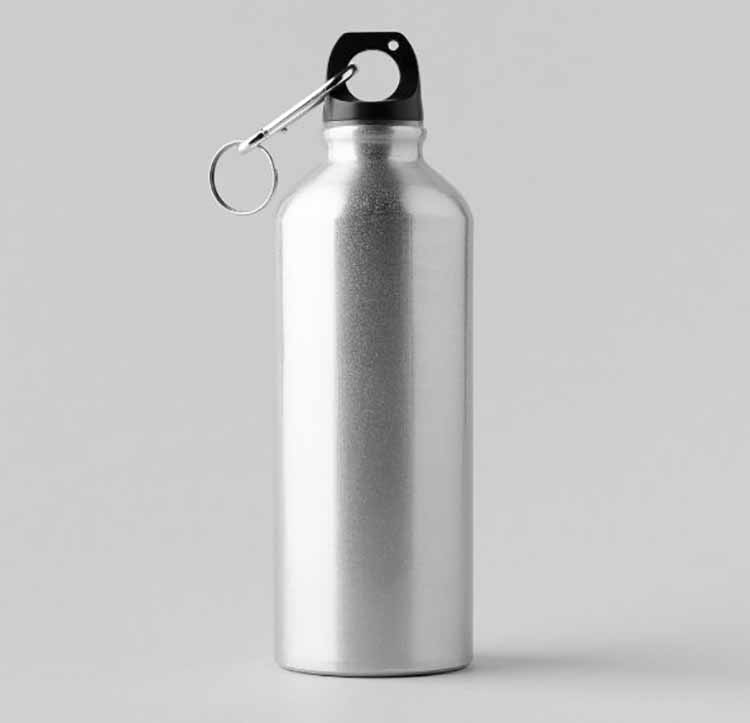
Although metal is a terrific alternative, bottles are usually coated with epoxy, resin, enamel, or polymer because aluminum reacts strongly with some liquids. Aluminum water bottles are made with food-grade and BPA-free materials and liners. Due to its inexpensive cost, it is a common material for water bottles.
Pros of Aluminum Water Bottle
- An affordable alternative to glass or stainless steel.
Cons of Aluminum Water Bottles
- Dent is easier than stainless steel.
- The lining may chip off over time.
- Water may have a slight metallic taste.
Recommended: Best Lightweight Aluminum Water Bottles
03. Glass Water Bottles
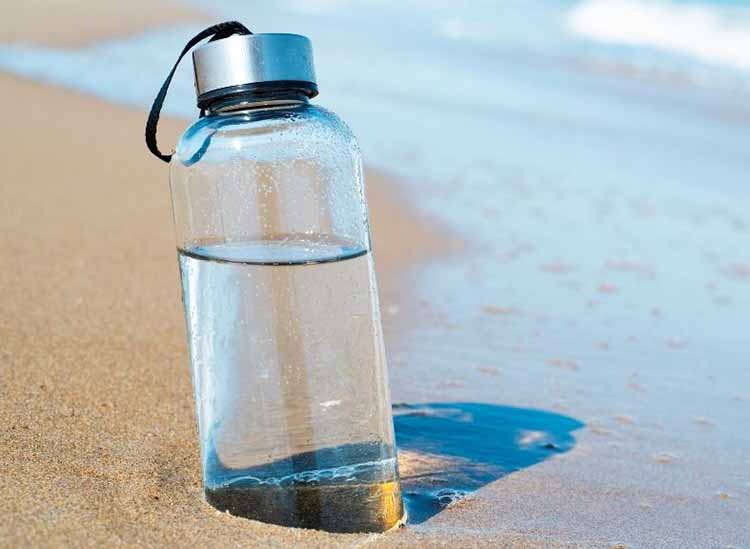
Many sources agree that glass water bottles are the healthiest, safest, and most effective way to store water. This is because, unlike many metal and plastic water bottles, it is non-reactive and does not provide a risk of leaching. The presence of lead and cadmium in certain glasses is the sole chemical hazard associated with using glass water bottles.
Pros of Glass Water Bottle
- Get a natural taste of water.
- The best for all kinds of liquids.
- High value.
- Safe in Dishwasher.
Cons Glass Water Bottle
- Costly
- Highly breakable.
04. Stainless Steel Water Bottle
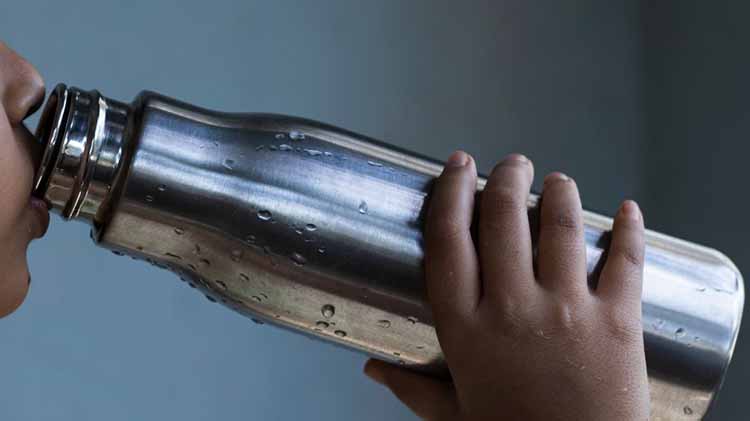
If you’re looking for a reusable, fashionable, reasonably priced, and portable solution, the stainless steel water bottles are a terrific choice. The Hydro Cell WIDE Mouth Two-Tone is safe to use because it is made of food-grade stainless steel. Since stainless steel is non-reactive, the material won’t leak and doesn’t require lining.
Extensive measures are implemented to ensure that no allergenic chemicals are utilized during the manufacturing or color-coating process of the bottles. The best option is the stainless steel water bottle because of its superior quality.
Pros of Stainless Steel Water Bottle
- No harmful chemicals.
- A wide range of shades and styles are available
- Control temperature.
Cons of Stainless Steel Water Bottle
- Might dent.
Recommended: Benefits of Stainless Steel Water Bottles!
05. Copper Water Bottle
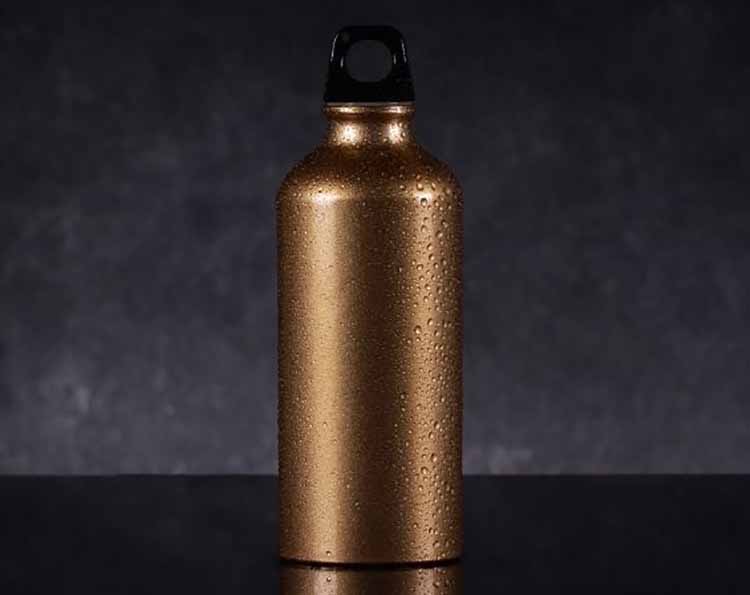
For hundreds of years, people have used copper water bottles. According to practitioners of Ayurveda, drinking and keeping water in copper bottles can aid with digestion, preserve bodily equilibrium, stimulate the brain, and slow down the aging process.
However, contemporary science has not produced any evidence to support this understanding. Nevertheless, due to its ability to lower the growth of harmful germs in water, copper is still considered a safe substance.
Pros of Copper Water Bottle
- Excellent designs
- Strong and durable
Cons of Copper Water Bottle
- Copper seeps into the water, and a higher amount causes nausea.
- Bottles change color over time.
- Slightly metallic taste.
- May dent.
- Limited use with water only.
Final Thought
Finally, any reusable material is the best materials for drinking water bottles. Reusable water bottle reduces the use of plastic material and saves our planet. The metal water bottle has the best features to use again and again.
If you are traveling a lot or going outside most of the time, a reusable metal drinking water bottle might be the best choice to save the earth from pollution. As a conscious person use safe material drinking water bottles.

